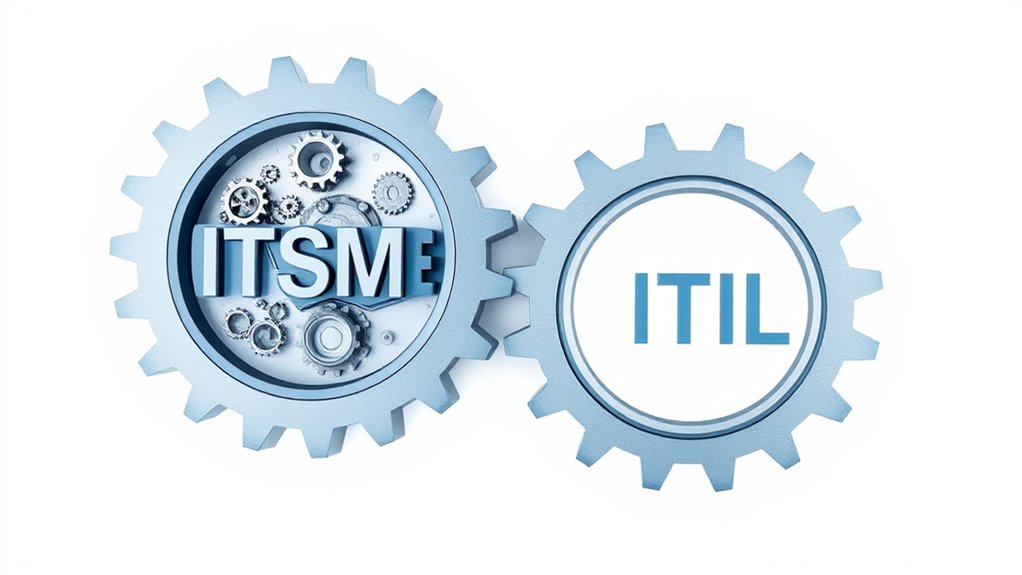B2B integration streamlines business processes by automating data exchange and communication between trading partners. The system eliminates manual data entry, reduces errors, and enables real-time visibility across supply chain operations. Through automated workflows, organizations can efficiently manage invoicing, order processing, and inventory tracking while maintaining data accuracy. This integration leads to reduced operational costs, improved collaboration between partners, and enhanced customer satisfaction. Exploring the technical components reveals how businesses achieve these efficiency gains.

As businesses seek to optimize their operations in an increasingly digital marketplace, B2B integration has emerged as an essential solution for streamlining complex business processes across organizations. Through automated data exchange and process integration, companies can considerably reduce manual workload while improving accuracy and efficiency in their daily operations. This integration enables seamless communication between trading partners, automating vital tasks like invoicing, order processing, and inventory management. The implementation of critical EDI standards ensures structured and standardized document exchange between businesses.
B2B integration revolutionizes business operations by automating data exchange and streamlining processes between organizations, enabling seamless partner collaboration and enhanced efficiency.
The implementation of B2B integration delivers substantial improvements in data accuracy by eliminating manual data entry and its associated errors. Integrated validation mechanisms guarantee information accuracy before transmission, while automated systems maintain data integrity throughout the process. This enhanced accuracy leads to better decision-making capabilities and fewer missed deadlines, ultimately supporting more synchronized operations between business partners. Digital channels are expected to handle 80% of B2B sales interactions by 2025.
Real-time data exchange provides unprecedented visibility into supply chain operations, allowing companies to monitor transactions and inventory status continuously. This transparency enables proactive issue identification and resolution, minimizing disruptions in the supply chain. Organizations can track performance metrics and manage potential risks more effectively, resulting in smoother order processing and delivery management. Modern cloud-based solutions are increasingly becoming the preferred choice for B2B integration implementations.
The financial benefits of B2B integration are considerable, as companies experience reduced labor costs through the elimination of redundant tasks and manual data entry. The decrease in paper-based transactions and operational overhead leads to substantial cost savings, while optimized workflows minimize the need for frequent communication through traditional channels like phone calls and emails.
B2B integration strengthens collaborative relationships between trading partners through real-time access to shared data and seamless process coordination. This enhanced collaboration leads to more effective partnership decisions and improved responsiveness to changing business needs.
Customer satisfaction also increases as organizations can process orders more quickly and accurately, providing real-time updates and responding promptly to customer inquiries. The result is a more efficient, responsive, and customer-centric business operation that can adapt to market demands while maintaining high service quality standards.
Frequently Asked Questions
What Security Measures Protect Sensitive Data During B2B Integration?
B2B integration security relies on multiple layers of protection.
Organizations implement AES-256 encryption for stored data and TLS protocols for information in transit.
Multi-factor authentication and role-based access control restrict system entry, while API security measures include authentication keys and real-time monitoring.
Compliance frameworks like GDPR guide data handling practices, supported by regular security audits and documented incident response procedures.
How Long Does Implementing a Complete B2B Integration Solution Typically Take?
Implementing a complete B2B integration solution typically takes 3-12 months, depending on complexity and scope. Most organizations require at least 3 weeks for a single integration, while full-network deployments with multiple partners often exceed 6 months.
Key factors affecting timeline include:
- Number of trading partners
- Data standardization requirements
- System compatibility
- Technical infrastructure readiness
- Post-deployment maintenance needs
Projects involving real-time automation and compliance features generally fall on the longer end of the spectrum.
Can Small Businesses Benefit From B2B Integration Solutions?
Small businesses can greatly benefit from B2B integration solutions. These systems reduce operational costs through automation of manual tasks and elimination of paperwork.
Integration platforms improve accuracy by standardizing data exchange, while real-time visibility enhances decision-making capabilities. Small businesses gain competitive advantages through faster order processing and improved customer service.
Additionally, cloud-based solutions offer scalable pricing models that accommodate smaller budgets while supporting future growth opportunities.
What Are the Initial Costs of Setting up B2B Integration?
Initial B2B integration setup costs typically range from $17,000 to $185,000, encompassing several key components:
- Software licensing: $5,000-$25,000 for platforms and EDI solutions
- Technical infrastructure: $10,000-$150,000 for development and customization
- Implementation and training: $2,000-$20,000
- Compliance and legal requirements: $2,000-$10,000
Additional costs may include data migration, security measures, and third-party integration fees.
Costs vary based on business size, complexity, and specific requirements.
How Does B2B Integration Handle Different Data Formats Across Multiple Partners?
B2B integration handles diverse data formats through specialized translation engines and mapping tools.
These systems convert data between formats like EDI, XML, and JSON while maintaining data integrity.
Integration platforms employ canonical data models as intermediaries, standardizing information across multiple partners.
Automated mapping processes transform partner-specific formats into standardized structures, while governance frameworks guarantee consistency in data exchange and format management.









